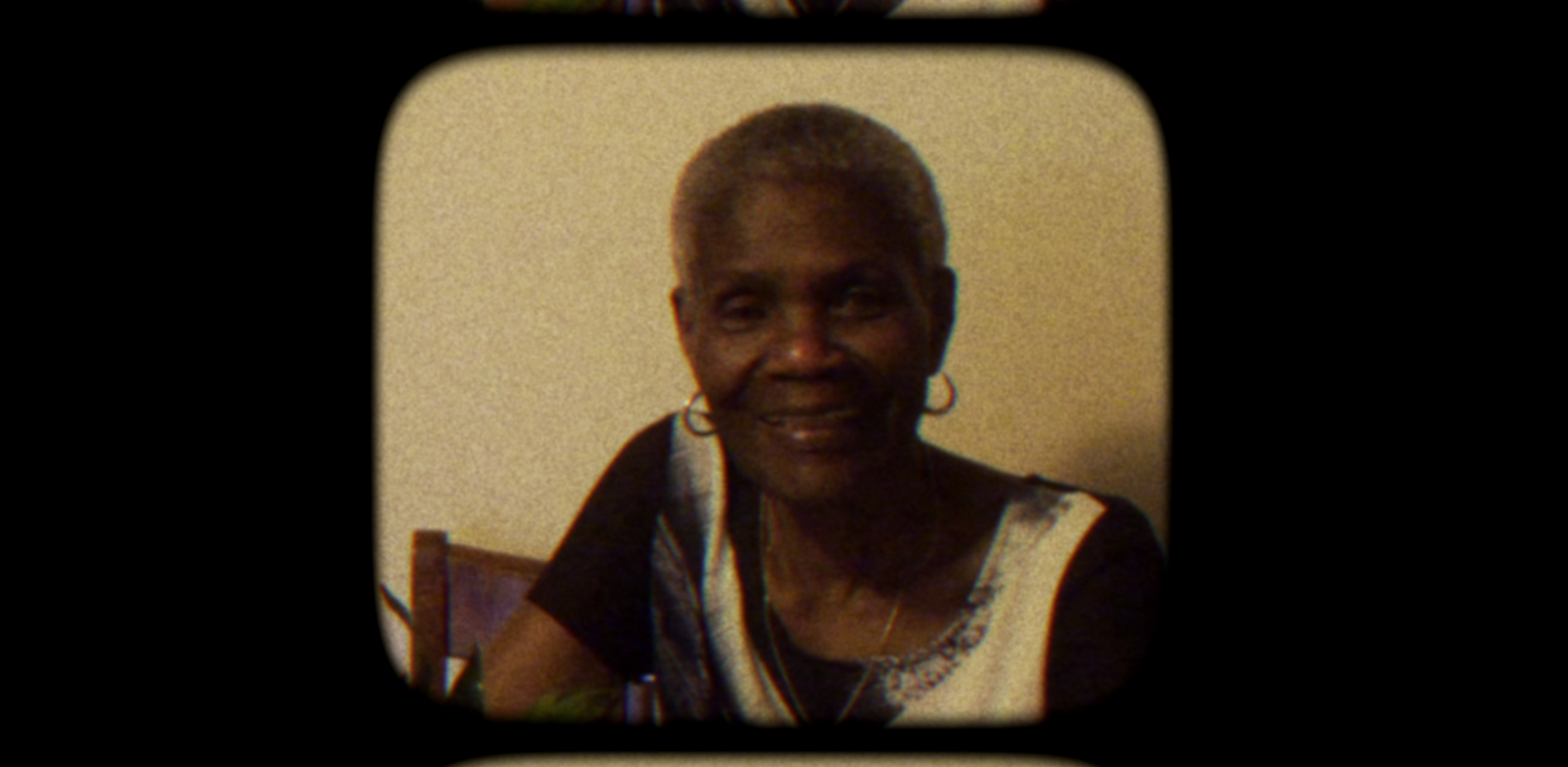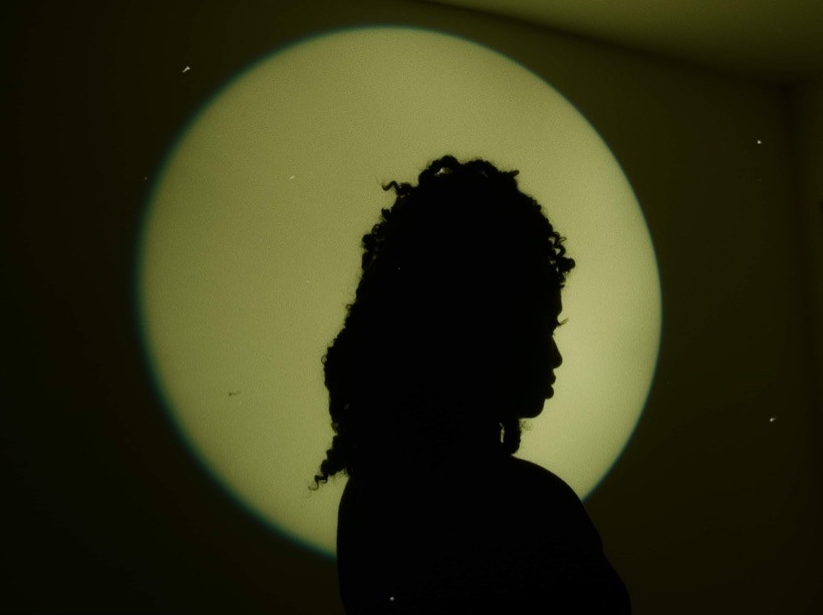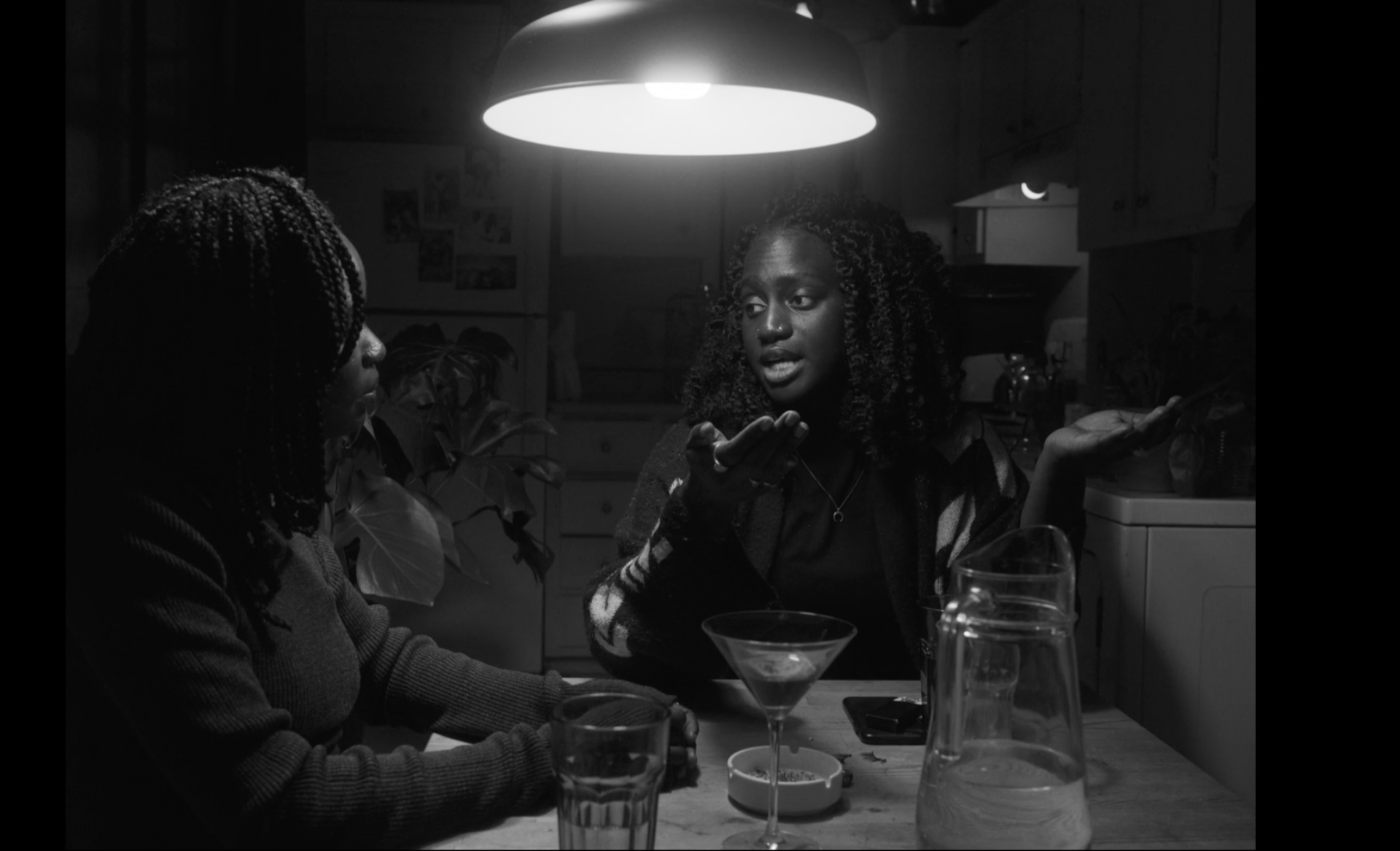Speaking Back, Re-shaping Tomorrow – A Reflection on the Looking In, Looking Out Black Arts Series Film Screening
by India-Lynn Upshaw-Ruffner
 Ra’anaa Yaminah Ekundayo, elemental
Ra’anaa Yaminah Ekundayo, elemental
 Adam Mbowe, halves & doubles
Adam Mbowe, halves & doubles
“Black livingness is contained in how we—Black people—tell stories about our universe, and importantly, our selves are always contained in that universe.”i
“to talk back is to liberate one’s voice”ii
Speaking back is a fundamental practice for Black people. It recognises our past while paving new futures forward. According to bell hooks, a tool to combat systemic inequalities is “true speaking,” which she emphasizes is an essential act of resistance for Black liberation.iii The Looking In, Looking Out Black Arts Series Film Screening at the FOFA Gallery brought together six Black creatives who embody these notions in their films, sharing their stories from their perspectives.
Each artist represents facets of their own universe through the medium of film, albeit it in different ways. Ra’anaa Yaminah Ekundayo, Karl Obakeng Ndebele, Badewa Ajibade, Desirée de Jesús, Adam Mbowe, and Emem Etti’s short films are anchored in ancestral messages, family, and mental health, while also engaging with ideas of resistance, resilience and the quotidian. Each artist approaches filmmaking in a specific way, whether through recreating true events, reshaping scenarios, or revisiting ancestral stories.
The creatives in this series engage with the ideas held in the repetitive and cyclical sense of the prefix “re,” expressing their desire to re-share what they have experienced in their lives. Stories of life told by and from a Black perspective are so often obfuscated in the art milieu and in the world at large, so each time stories are shared, they are reimagining ways that Blackness can and does exist. Ekundayo’s film elemental exemplifies this idea, as they reuse and remix family archive photos and videos to create a space of care and love. Through their careful curation of family archives, they make a film that recreates the feeling of time passing so fast that it is hard to remember everything happening, reminding the audience to treasure the present moment and always remember where we came from. However, they also ensure opacityiv through this fast-paced editing, as they maintain agency over how much is revealed in the length of each clip, sharing some of themselves while keeping some safe. Learning from and cherishing our personal histories allows us to create new bountiful futures for ourselves and our community. Black people must become our own archivists and retell our own stories, so they are not forgotten, and as Ekundayo poetically describes in their film, “we are elemental.”

Overall, the concept of Black Livingness is foregrounded throughout each film. Author Katherine McKittrick coined this term, which deconstructs the idea of “Blackness,” asking if there is one all-encompassing way of being Black, which society perpetuates overtly and covertly.v Living, loving, rebelling, cherishing are all forms of livingness. By dismantling the box that Blackness is contained within, artists can create a space to exist without boundaries or expectations – a space that allows them to pave a self-determined path forward. Adam Mbowe’s film halves & doubles embodies Black Livingness, and centres on her relationship with her sibling, setting the stage midway through an intense conversation surrounding her sibling’s mental health struggles. The audience witnesses a family bond strengthen through honest and open communication, and Mbowe makes visible the imperfections of conflict resolution, as well as the natural ebbs and flows of human existence. Mbowe is also referencing artist Carrie Mae Weems’ Kitchen Table Series through her mise-en-scene, using the lighting, a table, and framing each shot in a similar way to Weems’ photo series. Weems’ artwork is one of the most widely known auto-biographical works by a Black female artist and details the intricacies of her experience as a Black woman, but also as a mother, as a partner, and as a friend.vi Similar to Kitchen Table Series, Mbowe’s film shares her story as a Black person, but it’s so much more. Viewing this film from an angle of Black Livingness, we can see the complexities and intricacies and experience it beyond simplified visions on identity, and move towards a natural, whole, and raw existential scope.
Every artist in the Black Arts Series is proudly speaking back, and we ought to continue celebrating and sharing stories told from diverse and intersectional Black perspectives. We need to keep speaking ourselves into being.vii
[i] Katherine McKittrick, Dear Science and Other Stories, Durham: Duke University Press, 2021.
[ii] bell hooks, “Talking Back,” Talking Back: Thinking Feminist, Thinking Black, Boston, South End Press, 1989, 8.
[iii] Ibid.
[iv] Benjamin P. Davis, “The Politics of Édouard Glissant’s Right to Opacity,” The CLR James Journal 25, no. 1/2 (2019): 59–70. https://www.jstor.org/stable/26946358.
[v] Katherine McKittrick, “Dear April: The Aesthetics of Black Miscellanea,” Antipode 54, no. 1 (2022): 3–18.
[vi] Carrie Mae Weems and Sarah Elizabeth Lewis, Carrie Mae Weems : Kitchen Table Series Second ed., New York, NY: MW Editions, 2022.
[vii] Liz Ikiriko, “Speaking Ourselves into Being,” C Magazine Issue 144, December 15, 2019, 36, https://cmagazine.com/issues/144/speaking-ourselves-into-being.
About the author
India-Lynn Upshaw-Ruffner is a Black bi-racial artist, writer, curator, and cultural worker from Montréal. She is currently completing her BFA in Art History and Studio Arts at Concordia University. India-Lynn was a facilitator/curator for the 2022 Art Matters Festival. Her work has been shown at Fais-moi l'art gallery in the co-curated exhibition Tenderly Reminiscing (May 2023). She was the Artistic and Community Alliances Coordinator at La Centrale Galerie Powerhouse in 2022, producing the digital publication [espace variable | placeholder].

